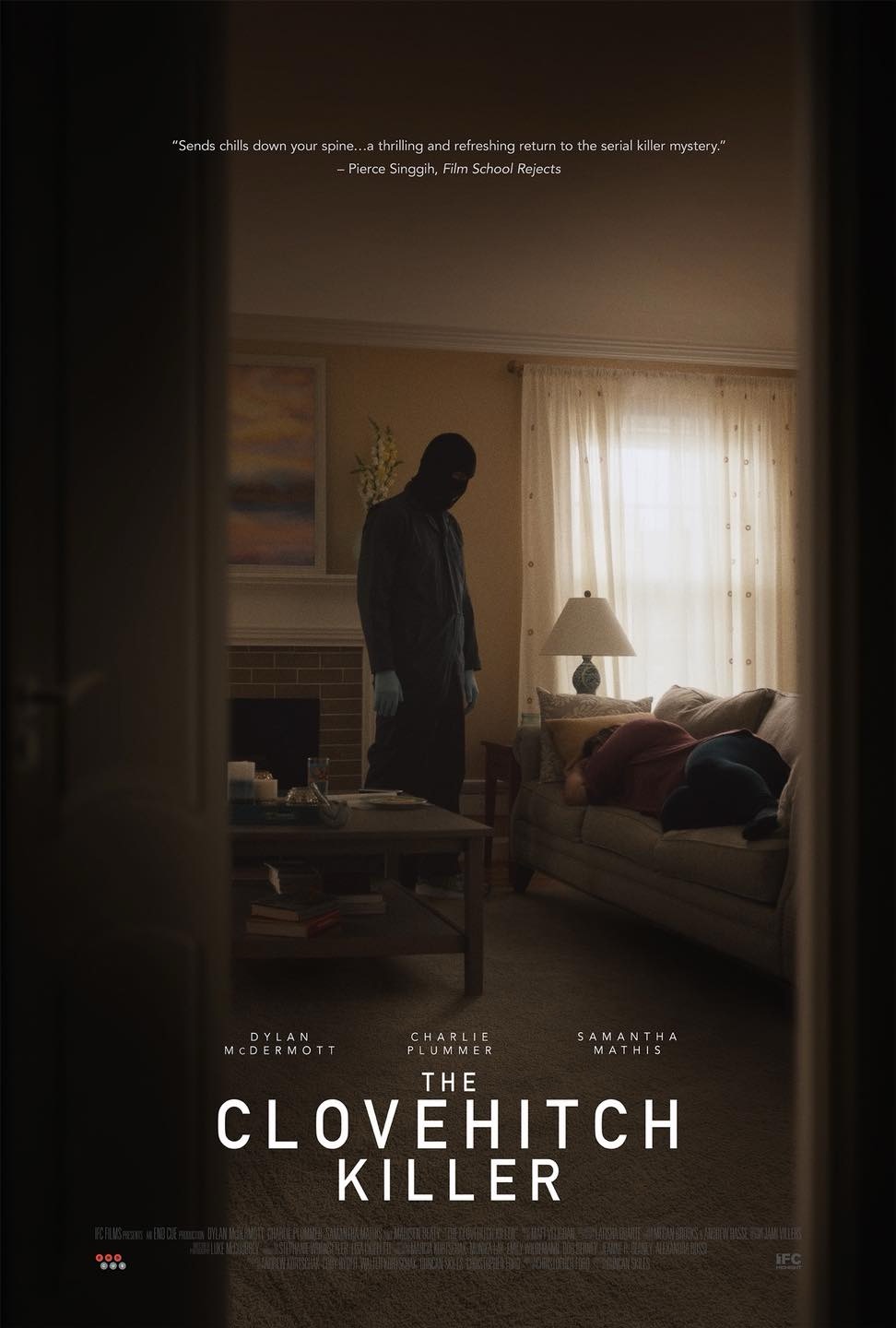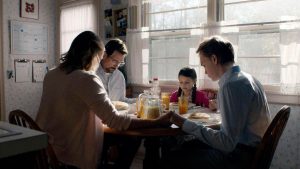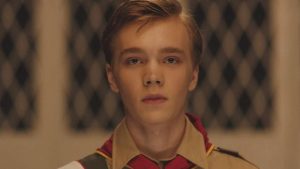The Clovehitch Killer (2018)

The Clovehitch Killer (2018), directed by Duncan Skiles, is a chilling psychological thriller that dives deep into the unsettling undercurrents of suburban life. Set in a small, seemingly quiet town, the film draws its inspiration from real-life serial killers, most notably Dennis Rader, the BTK Killer. The plot revolves around a teenage boy, Tyler Burnside (Charlie Plummer), who begins to suspect that his father, Don Burnside (Dylan McDermott), might be a notorious serial killer responsible for a string of unsolved murders in their community.
Suggested video for you:
Plot Overview
The film opens with a portrait of normalcy—Tyler, a 16-year-old, is a well-mannered boy from a devout Christian family. His father, Don, is a respected member of the community, involved in church activities and is an all-around family man. But things take a dark turn when Tyler stumbles upon a disturbing photograph hidden in his father’s shed. This discovery triggers a spiral of suspicion, and Tyler starts questioning everything he thought he knew about his father.
The Clovehitch Killer, the nickname given to the serial killer who terrorized their town years ago, was known for tying up his victims with a clove hitch knot. The killings abruptly stopped a decade before the events of the movie, leaving the community haunted but with no closure. As Tyler digs deeper, he teams up with Kassi (Madisen Beaty), a local girl obsessed with the Clovehitch case. Together, they try to uncover the truth behind Don’s seemingly perfect façade, all while navigating the fear and doubt that comes with suspecting a loved one of unspeakable crimes.
Themes and Tone
What makes The Clovehitch Killer stand out is its slow-burn approach to the material. Rather than relying on gore or shocking visuals, it builds tension through a careful unraveling of secrets and character dynamics. The film explores themes of family, trust, and the often-hidden darkness lurking beneath the surface of normalcy. There’s an eerie contrast between the idyllic suburban setting and the horrifying possibility that the killer is someone living right next door.
The pacing is deliberately methodical, allowing the audience to feel the weight of Tyler’s growing paranoia. It’s more about psychological horror than outright terror, and this makes the film much more suspenseful as it constantly keeps viewers on edge. The subtlety of its horror is reminiscent of classic suspense thrillers, where much of the dread comes from what isn’t shown, as opposed to graphic violence.
Performances
Dylan McDermott’s performance as Don Burnside is a standout. Known for playing charming, good-natured characters, McDermott uses that likability to make Don even more terrifying. He portrays the character with a disarming warmth that leaves the audience questioning whether or not he could be the monster Tyler fears. This duality—on the surface, a loving father and pillar of the community, but beneath, possibly a cold-blooded killer—gives the film a compelling edge.
Charlie Plummer is equally impressive as Tyler, the young protagonist torn between his growing suspicions and his love for his father. His portrayal of the internal conflict, trying to reconcile the two images of his dad, is deeply empathetic. Plummer captures the awkwardness and confusion of adolescence while layering it with the horror of doubt and the burden of having to uncover a terrible truth.
Madisen Beaty, as Kassi, also delivers a solid performance. Her character represents a more skeptical and rebellious counterpoint to Tyler’s innocence, which helps to move the investigation forward. Her obsession with the Clovehitch case contrasts sharply with the blind faith many in the town have in their community’s morality.
Cinematography and Atmosphere
The film’s cinematography, handled by Luke McCoubrey, enhances the eerie and suffocating atmosphere. The camera often lingers on mundane details—suburban houses, quiet streets, family dinners—imbuing them with a sense of menace. The setting itself becomes an important character, with its perfectly manicured lawns and placid exteriors masking the horrors within.
The lighting and color palette are subdued, matching the tone of quiet dread that runs throughout the film. There’s a constant feeling of unease that permeates the film, from the cold, empty spaces in Don’s shed to the haunting woods where some of the killer’s crimes took place. The use of shadow and light is subtle but effective, heightening the tension without being overbearing.
Direction and Writing
Duncan Skiles, making his feature film debut, shows impressive restraint in his direction. He allows the tension to build slowly, focusing on the psychological rather than the physical horrors of the story. By keeping much of the violence off-screen, he leaves room for the audience’s imagination to fill in the gaps, making the eventual revelations all the more unsettling.
The script, penned by Christopher Ford, is taut and carefully constructed. It avoids the pitfalls of many serial killer films by not glorifying or fetishizing the violence. Instead, it focuses on the devastating impact such a figure can have on a community and a family. Ford’s dialogue is sparse but effective, allowing the actors to convey much of the story through subtext and emotion.
Reception and Impact
The Clovehitch Killer was generally well-received by critics, who praised its slow-burn tension and the performances of its cast, particularly McDermott’s chilling portrayal. However, the film did not receive widespread attention, perhaps due to its understated approach in a genre often dominated by more sensationalist fare. Despite this, it has since gained a cult following among fans of psychological thrillers.
The film’s commentary on suburban life and the hidden darkness within the “ordinary” family resonates with audiences, particularly in the wake of real-life cases of seemingly normal people who turned out to be monsters. It’s a haunting reminder that evil doesn’t always wear an obvious face—it can be lurking right in our midst, concealed by the familiar and the mundane.
Final through
The Clovehitch Killer is a quiet but deeply unsettling film that subverts many of the expectations of the serial killer genre. Its focus on character, atmosphere, and psychological tension sets it apart from more traditional horror films, making it a memorable and thought-provoking experience. While it may not appeal to those looking for fast-paced thrills or shocking gore, it’s a must-watch for fans of slow-burn suspense and deeply human horror.










